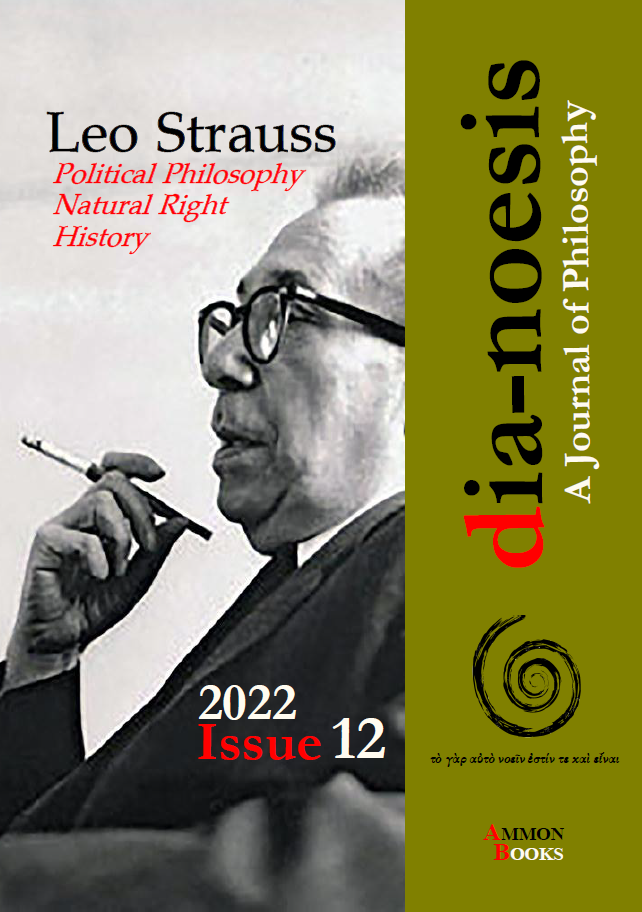Leo Strauss and the Challenges of Sex

Abstract
Although Leo Strauss (1899-1973) considered the binary distribution of sexuality a cornerstone of his political philosophy, a close reading of his essays reveals his awareness that traces of an androgynous conception of sexuality had survived in the foundational texts of the Hebrew and Greek tradition. The challenge posed by this contrarian view of sexual difference to Strauss’ anthropological premises remained without systematic consequences for his overall philosophical project. Against this backdrop, it is hardly surprising that Strauss conspicuously overlooked the groundbreaking challenge that defrocked monk and philosophical martyr Giordano Bruno (1548-1600) posed to binary sexuality. For the first time in European intellectual history, Bruno dissolved the man/woman hiatus for the sake of positing gradual, individual differentials within the male/female polarity. As regards his contemporaries, it is noteworthy that Strauss passed away the year before a young Jewish woman named Andrea Dworkin (1946-2005) published her initial book titled Woman Hating, a radical advocacy of feminism culminating in a theory of universal androgyny. It is safe to assume that Strauss, if given a chance, would have discarded the challenge posed by Dworkin’s Heraclitean design to lay out a sexual ontology that does away with the arbitrary fixities of patriarchy and welcomes the disruptive presence of androgynes.
Article Details
- How to Cite
-
Bauer, E. (2024). Leo Strauss and the Challenges of Sex. Dia-Noesis: A Journal of Philosophy, 12, 29–108. https://doi.org/10.12681/dia.37798
- Section
- Articles


